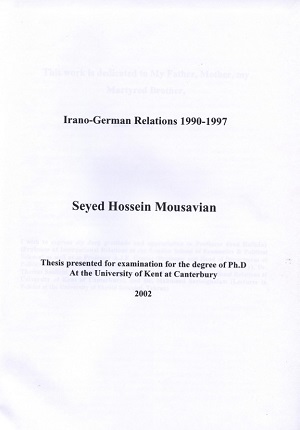Although the contents of the Iranian package has been kept confidential, during two different conferences representatives of two members of the international delegation attending the recent nuclear talks in Geneva informed me that “the new Iranian nuclear package addresses all major concerns of the world powers.” Russia’s “Step-by-Step Proposal” from 2011, plus credible media reports and statements by former US officials engaged on the nuclear issue, reveal that the major demands of the world powers are twofold.
Firstly, they insist that Iran show the maximum level of transparency by implementing the Nuclear Nonproliferation Treaty’s Additional Protocol, Subsidiary Arrangement Code 3.1 and cooperating with the IAEA to resolve the so-called “possible military dimension” issues.
Secondly, they want Iran to accept measures to prevent the chance of a “breakout” to a nuclear weapon: cap uranium enrichment at 5 percent, limit the number and type of centrifuges, accept a maximum ceiling on stockpiles of enriched uranium, ensure no reprocessing takes place at the heavy water facility in Arak, and forbid plutonium separation.
The Russian step-by-step plan contained all these major elements required by the world powers, and was welcomed by Iran because it includes two major Iranian demands: the recognition of Iran’s right to enrichment, and the lifting of sanctions. Reliable sources informed me that the Russian proposal failed because of US inability to provide sanctions relief in return for substantive Iranian measures.
All of the above suggests that a comprehensive deal on the nuclear issue is possible if the US and the world powers respects the rights of Iran under the Nuclear Nonproliferation Treaty, and if Iran gets proportionate sanction relief in return for accepting their major demands. This, in effect, places the demands of both parties within a package and implements a step-by-step, proportionate, and reciprocal process.
To prevent such a breakthrough from materializing, hawks in Tel Aviv and Washington are pushing a misleading proposal on “freeing up funds.” “My biggest concern is that if the administration takes out a brick from the sanctions regime, you won’t be able to put it back together,” asserted Mark Dubowitz, Executive Director of the Foundation for Defense of Democracies. He called the “freeing up funds” plan a way to offer a concession without changing the sanctions.
About USD 50 billion of Iran’s oil revenue is currently held in escrow accounts in countries that continue to import oil from Iran. Iran employs these assets to pay for imports from these countries. The resumption of nuclear negotiations has provided Israeli hawks and US hardliners the opportunity to freeze these funds entirely. Their suggestion that President Obama temporarily allow Iran access to those funds is most likely tied to nuclear concessions. Iran’s compliance will result in monetary rewards which leave the structure of the current unilateral and multilateral sanctions regimes imposed by United Nations, US, and Europeans intact.
Failure to comply, however, will result in the freezing of Iran’s assets abroad and placing it under a virtual embargo. Therefore, this proposal is in fact nothing but a Trojan horse. This policy not only blocks the nuclear deal, but would complicate the situation further at a time when—after a decade—the world powers and Iran are in a position to reach a final deal if the US can deliver real action on sanctions relief.
“Success is in sight, if sanctions can be lifted,” Hossein Mousavian, Asharq Al Awsat, November 6, 2013.
